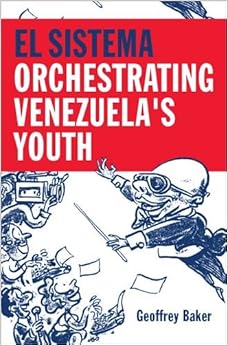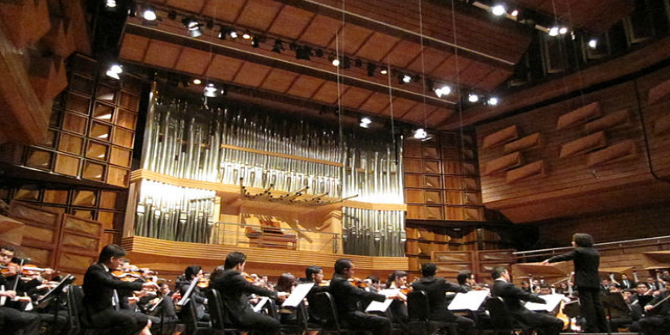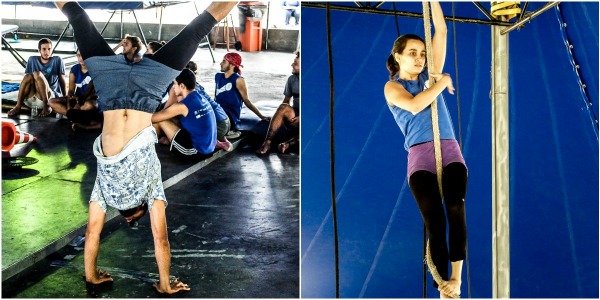The Venezuelan youth orchestra programme known as ‘El Sistema’ has attracted much attention internationally through its claims to use classical music education to rescue vulnerable children. Geoffrey Baker examines El Sistema’s program of ‘social action through music,’ reassessing widespread beliefs about the system as a force for positive social change. Anna Bull thinks this book will spur on some much needed soul-searching around the uncomfortable question of why the world, all too easily, fell for the hype.
 El Sistema: Orchestrating Venezuela’s Youth. Geoffrey Baker. Oxford University Press. December 2014.
El Sistema: Orchestrating Venezuela’s Youth. Geoffrey Baker. Oxford University Press. December 2014.
How do you persuade a major development organisation to give $500 million to a programme that has no evidence that it works? Easy. “We sit people down and make them listen to a huge orchestra of children playing Mahler 2 and then they fund us”, describes a senior El Sistema official. Most commentaries on El Sistema, the renowned music education programme in Venezuela, have succumbed, as did the Inter-American Development Bank, to this rhetorical power of children-plus-Gustav Mahler (or other Romantic ‘greats’). In this book, Geoffrey Baker describes how, when he began his ethnography of El Sistema, he was excited to discover its magic formula. Instead, he was forced to confront the reality: corruption; abuse; outdated pedagogy; false PR; untrained, underpaid teachers; a lack of workplace rights; and allegations of sexual abuse.
El Sistema is known around the world as a music education programme which rescues children from a life of poverty, drugs, and crime through the power of classical music. The only problem is, according to Baker, is that it doesn’t. In reality, Baker says El Sistema is actually full of middle-class kids, similarly to any classical music education programme the world over. Its promotional materials feature the story of a young musician who escaped from the drug-ridden Caracas slums through playing music; one of Baker’s informants scoffs at this, commenting that the only addict he knew in El Sistema got into drugs while playing in the Simon Bolivar Youth Orchestra. As Baker outlines, this PR hype is the typical modus operandi of El Sistema’s founder José Antonio Abreu, a consummate politician who excels in persuasion through spectacle and emotion. Against the prevailing view of El Sistema as ‘the most important thing happening in music anywhere in the world’ (as Simon Rattle would have it), this is a different El Sistema, one which trades accountability and transparency for grand gestures.
This book is in essence an exposé, albeit a very academic one, grounded in literatures from development studies, music education, and the history of Latin America. Baker describes how El Sistema was not established (in the 1970s) as a social programme, as its official histories state; instead it was simply a youth music education programme which was supported by the then right-wing government. It was not until the 1990s, with Chávez’s rise, that the ‘social action through music’ agenda became attached to it; this rhetorical move was necessary to legitimise El Sistema and its massive funding requirements under the new regime. The content of the programme didn’t change, just the legitimising discourses.
As a result, there is a disjunction between rhetoric and practice, leading Baker to argue that there is an ‘obvious contradiction in using an inherently exclusive organization – the symphony orchestra – as the basis for inclusivity’. He suggests that as well as learning about discipline, as proponents of classical music are wont to argue, young people in El Sistema are also internalising values of obedience, hierarchy and competitiveness. This occurs through a system where the standard pedagogic experience involves being shouted at (or even hit) by a young, untrained, poorly paid teacher (there are fifteen index entries in the book for ‘verbal abuse and humiliation’). An orchestra may symbolise social interaction without enacting it; democracy is not harmonious, but ‘diverse and discordant’. Despite this, the ‘web of metaphors’ around the ideal of the orchestra is so powerful that we fail to ask critical questions because we are intoxicated by Mahler.

The only surprise is that we fell for it so easily. Why is this ‘bourgeois fantas[y] about the power of Beethoven to save the poor’ so compelling to us? It has seduced not only the Inter-American Development Bank, but also academic researchers and cultural entrepreneurs everywhere. This book should ring alarm bells among those for whom this idea of social change through classical music appears to be so exciting. Indeed, Baker self-identifies as a lefty, and addresses readers with ‘progressive’ leanings. El Sistema’s self-declared vision is ‘rescuing children and young people from an empty, disorientated, and deviant youth’. The narrative of ‘music’, ‘drugs and crime’, ‘poverty’ and ‘rescue’ appear to fit so neatly together. This happy discursive alignment doesn’t seem a sufficient explanation for El Sistema’s enormous popularity and expansion. But when combined with a believing class who have access to resources and powerful networks, maybe it is. The Sistema phenomenon can therefore be read as a fable of the cultural power of classical music today. But what kind of mirror does it hold up to the Europe it is trying to emulate? And what kind of prestige does it offer that it is being so eagerly foisted onto deprived children in Los Angeles, Auckland, Newcastle, Ankara, and Seoul, among 243 other cities?
The book has rightly received widespread media attention for its exposé of El Sistema as a ‘model of tyranny’ (as the Guardian, misquoting Baker, headlined it). It will be uncomfortable reading for those who consider classical music as part of their secular religion and view El Sistema as an opportunity to proselytise accordingly. It’s a page-turner, but even so I wanted more juicy ethnographic detail. Indeed, Baker’s relationship with his method (ethnography) is equivocal, in that he is cautious in making claims on the basis of his evidence, perhaps in anticipation of the critiques that have indeed followed. Presumably, this strong consensus in favour of El Sistema is what has stopped other academics, journalists, or commentators from speaking against the one-sided celebratory discourse that has been the only story up until now. Even academic researchers have taken the programme at face-value, assuming that it does what it says on the tin. We can no longer live in fantasy land: now for some soul-searching around the uncomfortable question of why we all fell for the hype.
—————————————-
Anna Bull has recently submitted a PhD in the sociology department of Goldsmiths, University of London, examining how class is reproduced among young people playing classical music in England. You can read a short piece about it here: http://www.discoversociety.org/2014/11/04/reproducing-class-classical-music-education-and-inequality/ Her previous career was as a precariously employed musician.








Super review. Here is a link to my mine. Not all of us fell for the El Sistema propaganda:
http://www.musiceducationuk.com/all-resources/2015/2/26/el-sistema-orchestrating-venezuelas-youth-geoffrey-baker-reviewed-by-jonathan-savage